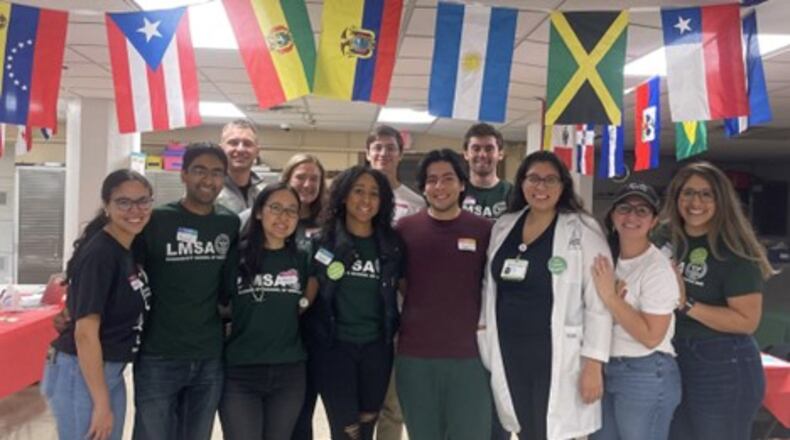Cultural contributions have been equally significant. The annual Hispanic Heritage Festival, which is celebrating its 23rd anniversary with the help of Puerto Rican Americans and Caribbean Organization (PACO), showcases traditional music, dance, and delicious cuisine from a diverse Hispanic/Latino background. This festival not only celebrates Hispanic culture but also fosters cross-cultural understanding among Dayton residents. The festival has become a cornerstone of the city’s cultural calendar, highlighting the rich traditions of Hispanic heritage.
In addition, the educational landscape has also benefited from the presence of the Hispanic community. Hispanic/Latino students and professionals have made strides in various fields, including healthcare, education, and the arts. Local schools have increasingly incorporated bilingual education programs, reflecting this growing population and the importance of cultural inclusivity.
The Latino Medical Student Association (LMSA) at Wright State University Boonshoft School of Medicine has united and empowered medical students through service, mentorship, and education to advocate for the health of the Hispanic/Latino community in Dayton. The organization advocates for policies and practices that address health disparities affecting this community. This includes promoting research and initiatives to improve healthcare access and outcomes for the Hispanic/Latino population. With this goal in mind, LMSA has partnered with organizations in the community to provide culturally competent healthcare through the Latino Wellness Clinic, a monthly medical student free-run clinic. Through this clinic, LMSA looks to enhance cultural competency among future healthcare professionals from Wright State University, by offering medical Spanish training, helping to understand and address the unique health needs of this population, and fostering more inclusive and effective care that can make a greater impact in the life of the Hispanic/Latino community. Last year, more than 300 Hispanic/Latinos visited our clinic, helping many people from the community who have not seen a doctor in years. This effort was thanks to the collaboration and support of many organizations in Dayton.
There are several meaningful ways in which the Dayton community can support Hispanic/Latino in Dayton and contribute to a more inclusive community. You could support Hispanic-owned businesses and restaurants. This support not only boosts the local economy but also helps sustain cultural heritage and diversity. Engage with and attend Hispanic cultural events and festivals. Events like the Hispanic Heritage Festival celebrate the rich traditions of the Hispanic community and promote cross-cultural understanding. You can advocate for equitable practices in healthcare, education, and employment, and get involved with local organizations that serve the Hispanic/Latino community, such as educational programs and social services. Also, volunteering your time or making donations can significantly impact these organizations’ ability to support their communities. Finally, you can help foster an environment of inclusivity by participating in dialogues about diversity and inclusion, thus encouraging and supporting initiatives that aim to build bridges between different cultural groups.
By acknowledging the contributions of Hispanic/Latino Americans, supporting organizations like LMSA, and actively engaging in community support, we can celebrate Hispanic Heritage Month and contribute to a more inclusive and equitable Dayton.
Victor Aballe Mosqueda is a Cuban American studying medicine at WSU Boonshoft School of Medicine, president of the Latino Medical Association and chair of the Latino Wellness Clinic in Dayton.
Marcelo Costa MSc is a second-year medical student native of Brazil. He is passionate about neurosurgery, healthcare equity, and addressing the disparities encountered by the Latino community in the Midwest.


